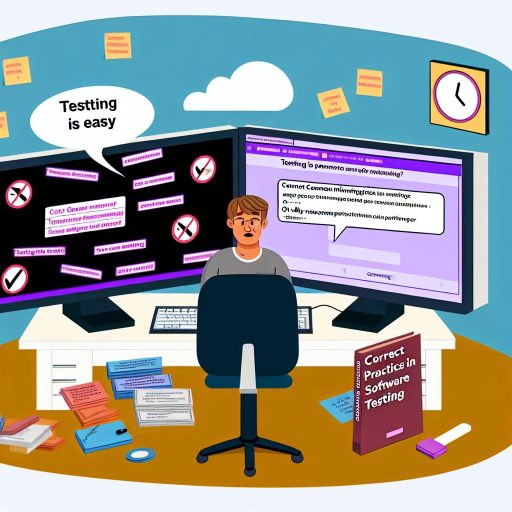Introduction:
Customer Relationship Management (CRM) is a strategy used by businesses to manage and analyze customer interactions and data throughout the customer lifecycle.
CRM helps businesses build strong relationships with customers, improve customer retention, and drive sales growth.
Brief Explanation of Customer Relationship Management (CRM):
CRM involves utilizing technology to organize, automate, and synchronize sales, marketing, customer service, and technical support.
It aims to improve customer service relationships and assist in customer retention and driving sales growth.
Importance of Maximizing Sales Through CRM:
By maximizing sales through CRM, businesses can better understand their customers’ needs and preferences.
Through personalized marketing strategies and targeted campaigns, businesses can increase sales and revenue.
Effective CRM strategies allow businesses to identify potential customers, nurture relationships, and convert leads into sales.
CRM enables businesses to track customer interactions and prioritize leads, resulting in improved sales efficiency.
Overall, maximizing sales through CRM helps businesses increase profitability, market share, and customer satisfaction.
Understanding your customers
Getting to know your customers is crucial for maximizing sales through customer relationship management.
It helps in building strong relationships, identifying opportunities, and providing personalized services.
Importance of knowing your customers’ needs and preferences
By understanding your customers’ needs and preferences, you can tailor your products and services to meet their expectations.
This leads to increased customer satisfaction, loyalty, and repeat business, ultimately maximizing sales.
Using data analytics to understand customer behavior
Data analytics allows businesses to analyze customer information to identify patterns and trends.
By tracking customer behavior, preferences, and buying history, businesses can make informed decisions to enhance their offerings.
Personalizing customer interactions
Personalization is key in building strong relationships with customers.
By personalizing customer interactions through targeted marketing campaigns, customized promotions, and personalized communication, businesses can enhance customer loyalty and drive sales.
Understanding your customers, knowing their needs and preferences, using data analytics to understand their behavior, and personalizing customer interactions are essential strategies for maximizing sales through customer relationship management.
By implementing these strategies, businesses can create a customer-centric approach that leads to increased sales, customer satisfaction, and loyalty.
Building Strong Relationships:
Establishing trust is vital in creating lasting relationships with customers.
Transform Your Career Today
Unlock a personalized career strategy that drives real results. Get tailored advice and a roadmap designed just for you.
Start NowRegular communication is key to maintaining a strong bond with customers.
Consistently delivering on promises helps build credibility and trust.
Understanding the needs and preferences of customers leads to personalized interactions.
Importance of Building Trust with Customers:
Trust is the foundation of long-term relationships with customers.
Customers are more likely to make repeat purchases from a trusted brand.
Trust leads to loyalty and advocacy, driving customer retention and referrals.
Building trust requires transparency, reliability, and consistency in interactions.
Providing Excellent Customer Service:
Delivering exceptional service creates a positive experience for customers.
Timely responses to customer inquiries show dedication and care.
Problem-solving skills are crucial in turning a dissatisfied customer into a loyal one.
Going above and beyond to exceed expectations sets a brand apart from competitors.
Engaging with Customers on Multiple Channels:
Utilizing various channels like social media, email, and phone enhances communication.
Each channel offers unique opportunities to connect with customers effectively.
Consistent messaging across channels maintains brand identity and customer recognition.
Engaging customers on multiple channels creates a seamless and integrated customer experience.
Explore Further: How to Stay Updated with QA Testing Industry News
Implementing CRM tools
- Introduction to popular CRM tools such as Salesforce, HubSpot, and Zoho
- Features of CRM tools that can help maximize sales
- How to choose the right CRM tool for your business
Customer Relationship Management (CRM) tools have become essential for businesses looking to maximize their sales potential.
Implementing the right CRM tool can streamline processes, improve customer interactions, and ultimately boost revenue.
Showcase Your Business Today
Reach thousands of readers actively exploring professional services. Publish your business profile and grow your audience now.
Publish NowIn this section, we will explore popular CRM tools like Salesforce, HubSpot, and Zoho, as well as discuss the key features that can help businesses maximize their sales strategies.
Introduction to popular CRM tools
Salesforce: Salesforce is one of the leading CRM platforms in the market, known for its robust features, scalability, and customization options.
It offers a comprehensive suite of tools for sales, marketing, and customer service teams, allowing businesses to manage customer relationships effectively.
HubSpot: HubSpot is a user-friendly CRM software that is popular among small to medium-sized businesses.
It offers a range of features such as contact management, email marketing, and analytics to help businesses attract, engage, and delight customers.
Zoho: Zoho CRM is a cloud-based solution that caters to businesses of all sizes.
It offers modules for sales automation, marketing automation, and customer support, making it a versatile tool for companies looking to streamline their sales processes.
Features of CRM tools that can help maximize sales
Lead management: CRM tools like Salesforce, HubSpot, and Zoho offer lead management functionality, allowing businesses to track, manage, and nurture leads throughout the sales cycle.
This can help sales teams prioritize their efforts and focus on high-quality leads, ultimately increasing conversion rates.
Sales automation: CRM tools streamline the sales process by automating repetitive tasks such as data entry, follow-ups, and lead scoring.
This not only saves time for sales representatives but also ensures consistency and accuracy in their interactions with customers, leading to more effective sales outcomes.
Analytics and reporting: CRM tools provide valuable insights into sales performance, customer behavior, and pipeline forecasting through analytics and reporting features.
By analyzing this data, businesses can identify trends, make informed decisions, and optimize their sales strategies for better results.
How to choose the right CRM tool for your business
Identify your needs: Before selecting a CRM tool, identify your business requirements, including the size of your team, the complexity of your sales process, and your budget.
This will help you narrow down your options and choose a tool that aligns with your specific needs.
Consider scalability: As your business grows, you need a CRM tool that can scale with your operations.
Look for a platform that offers flexible pricing plans, customization options, and integration capabilities to accommodate your evolving needs and future growth.
Ease of use: Choose a CRM tool that is intuitive and user-friendly to ensure seamless adoption by your team.
Training and onboarding should be straightforward, and the interface should be easy to navigate to maximize productivity and efficiency.
Integration capabilities: Consider how well the CRM tool integrates with your existing systems and tools, such as email, marketing automation, and e-commerce platforms.
Seamless integration can streamline processes, eliminate data silos, and provide a unified view of customer interactions for better decision-making.
Implementing the right CRM tool is crucial for maximizing sales through effective customer relationship management.
By choosing a tool that aligns with your business needs, offers the necessary features, and promotes user adoption, you can streamline processes, enhance customer interactions, and ultimately drive revenue growth.
Delve into the Subject: Building a Personal Brand as a Technology Evangelist
Training your sales team:
Make sure every team member knows how to effectively use CRM tools.
Help in building a customer-centric approach in sales strategies.
Ensure consistency in customer interactions and enhance customer satisfaction.
Importance of training your sales team on CRM tools:
Increase efficiency in managing customer relationships.
Provide insights into customer behavior and preferences.
Enhance the overall customer experience and increase customer loyalty.
Setting sales goals and targets:
Help in aligning the sales team towards a common objective.
Provide motivation and focus for the team members.
Allow for tracking progress and measuring success.
Monitoring and evaluating sales team performance:
Help in identifying strengths and weaknesses of individual team members.
Allow for timely feedback and coaching to improve performance.
Enable the sales manager to make data-driven decisions and adjustments.
By focusing on training, setting goals, and monitoring performance, you can maximize sales through effective customer relationship management.
Learn More: SAP Specialist Job Outlook: What to Expect

Rewarding Loyal Customers
Rewarding loyal customers is crucial in building lasting relationships.
It increases customer retention.
Showcase Your Business Today
Reach thousands of readers actively exploring professional services. Publish your business profile and grow your audience now.
Publish NowWhen customers feel appreciated, they are more likely to continue doing business with you.
Implementing Loyalty Programs
One effective way to reward loyal customers is through loyalty programs.
These programs offer incentives for repeat business.
Incentives may include discounts, exclusive offers, and special access to new products or services.
Using Customer Feedback to Improve Loyalty Programs
Customer feedback is essential in refining and enhancing loyalty programs.
By listening to what your customers want, you can tailor your rewards accordingly.
This tactic increases their loyalty to your brand.
Benefits of Rewarding Loyal Customers
- Increased customer retention
- Higher customer satisfaction
- Positive word-of-mouth marketing
- Boosted sales and profitability
- Enhanced brand loyalty
Strategies for Implementing Loyalty Programs
- Offering personalized rewards based on customer preferences
- Creating tiered membership levels for different spending levels
- Providing exclusive access to new products or services
- Sending personalized communications and offers
- Tracking and analyzing customer data to improve program effectiveness
How to Use Customer Feedback to Improve Loyalty Programs
- Conducting surveys or feedback forms to gather customer opinions
- Listening to customer complaints and suggestions for program improvements
- Implementing changes based on customer feedback
- Communicating with customers about updates and changes to the loyalty program
- Continuously evaluating and adjusting the loyalty program to ensure effectiveness
Discover More: How Incident Responders Work with Forensic Experts
Upselling and cross-selling:
Importance of upselling and cross-selling to maximize sales
Upselling and cross-selling play a crucial role in maximizing sales for any business.
These strategies help businesses increase revenue by encouraging customers to purchase additional products or services that complement their initial purchase.
By effectively implementing upselling and cross-selling techniques, businesses can not only boost their sales but also enhance customer satisfaction and loyalty.
Upselling involves persuading customers to buy a more expensive version of the product they are considering, while cross-selling refers to suggesting related or complementary products that would enhance the customer’s overall experience.
When done right, upselling and cross-selling can significantly increase the average order value and lifetime customer value, leading to improved profitability and sustainable growth.
Identifying opportunities for upselling and cross-selling
To maximize sales through upselling and cross-selling, businesses need to identify the right opportunities to offer additional products or services to customers.
One effective way to identify these opportunities is by analyzing customer behavior and purchase history.
By understanding their preferences and buying patterns, businesses can tailor their upselling and cross-selling strategies to meet the customers’ needs.
Another way to identify upselling and cross-selling opportunities is by recommending products that are frequently bought together or complement each other.
This can help businesses capitalize on the customer’s existing purchase and encourage them to make additional purchases.
Moreover, businesses can leverage data analytics and customer relationship management tools to track customer interactions and preferences.
This enables them to anticipate their needs and offer personalized upselling and cross-selling recommendations.
Training sales team on upselling and cross-selling techniques
For businesses to successfully implement upselling and cross-selling strategies, it is essential to train their sales team on effective techniques and best practices.
Sales representatives should be equipped with the necessary knowledge and skills to identify upselling and cross-selling opportunities, communicate value propositions, and overcome objections from customers.
Training programs should focus on understanding customer needs, demonstrating product benefits, and building trusting relationships with customers to effectively upsell and cross-sell additional products or services.
It is important to continuously coach and monitor sales team performance to ensure they are effectively implementing upselling and cross-selling strategies and driving sales growth for the business.
By investing in ongoing training and development for the sales team, businesses can empower their employees to maximize sales opportunities and deliver exceptional value to customers, ultimately leading to increased revenue and long-term success.
Maximizing Sales through Customer Relationship Management
Maximizing sales through Customer Relationship Management is crucial for a thriving business.
By implementing effective CRM strategies, companies can boost customer satisfaction, loyalty, and retention.
This, in turn, leads to increased sales revenue and sustainable growth.
Businesses must prioritize building strong relationships with their customers to ensure long-term success in today’s competitive market.
By leveraging CRM tools and techniques, companies can personalize their approach, anticipate customer needs, and provide exceptional service.
This proactive approach fosters trust and loyalty, resulting in repeat business and referrals.
Ultimately, investing in CRM is not just about increasing sales numbers; it’s about cultivating meaningful connections with customers.
When companies make customer relationships a top priority, they create a foundation for lasting success.
By consistently delivering value and exceeding expectations, businesses can achieve sustainable growth and stand out in a crowded marketplace.
Additional Resources
Salesforce: The Customer Company | Salesforce US
Best Dashboard Examples: Over 100 by Industry & Role
[E-Books for Sale]
The Big Book of 500 High-Paying Jobs in America: Unlock Your Earning Potential
$19.99 • 500 High-Paying Jobs • 330 pages
Explore 500 high-paying jobs in America and learn how to boost your career, earn more, and achieve success!
See All 500 High-Paying Jobs of this E-Book
1001 Professions Without a Degree: High-Paying American Jobs You Can Start Now
$19.99 • 1001 Professions Without a Degree • 174 pages
Discover 1001 high-paying jobs without a degree! Unlock career tips, skills, and success strategies for just $19.99!




